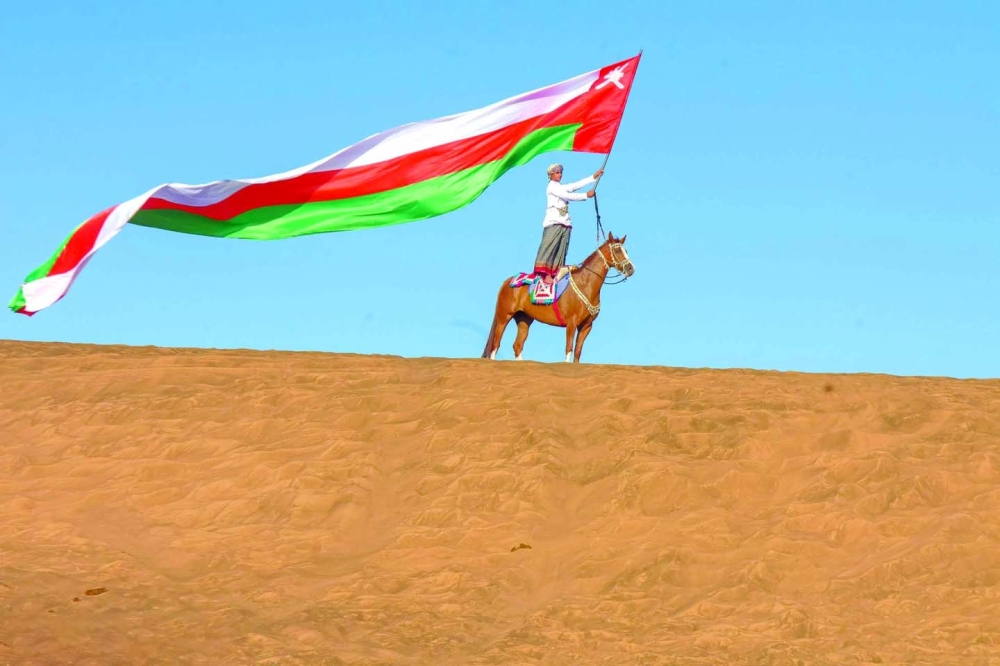

As part of the efforts to ensure its place in the global competitive landscape, the Sultanate of Oman is aligning itself with sustainable development through diversified economic measures.
In this end are the goals and objectives of the 2030 Agenda for Sustainable Development that have become an important component of Oman Vision 2040 and Five-Year Development Plans with a focus on economic growth, social inclusion and protection of the country's environment.
Vision 2040 is a 20-year nationwide multi-sector document that is the Sultanate of Oman's gateway to overcoming challenges, keeping pace with regional and global changes, generating and seizing opportunities to foster economic competitiveness and social well-being, and stimulating growth.
Oman was among the nations at the UN Summit in September 2015 to recognise and adopt the 2030 Agenda for Sustainable Development Goals (SDGs), thus becoming one of the member states that agreed upon devoting all efforts to attain the goals for peace and prosperity to people and the planet.
After integrating the SDGs with national policies, initiatives and programmes, Oman submitted its first voluntary national review in 2019, and the country has made significant progress in this regard.
The Sultanate is expected to submit its second voluntary report on the progress in achieving the 2030 Sustainable Development Goals (SDGs) to the United Nations in July 2023.
Indeed, the Vision 2040 document can be interpreted as the government's environmental, social and governance blueprint as growth is aligned with global standards.
Key priorities include creating a strong administrative and regulatory framework that facilitates job creation, in addition to investment and business growth that is central to building new sustainable infrastructure.
The Oman Vision 2040 and the Five-Year Plans both underscore the fact that Oman takes the 2030 Agenda seriously while devising the necessary policies, initiatives and programmes to ensure the achievement of desired goals by the internationally agreed deadline.
An institutional mechanism has been established to work on the second voluntary report in which the Ministry of Economy is working on development plans, programmes and policies necessary to achieve the goals and finding mechanisms that would implement those programmes and policies.
Oman took a set of measures after ratifying the 2030 Sustainable Development Goals considering that the nation "keeps pace with the developments in international charters, foremost of which is the 2030 Agenda to achieve sustainable development". This has been one of the main pillars for preparing the Ninth and Tenth Five-Year Plans.
According to a report released by the World Government Summit Organization, in partnership with the Mohammed bin Rashid School of Government, the Sultanate of Oman is among six countries in the Arab world to have achieved 60 per cent of the SDGs.
The report titled "Arab Region Sustainable Development Goals Index 2022" has revealed big differences in the progress that Arab countries are making towards achieving the UNSDGs.
Six countries lead the regional score, with a total index score of 66 or more achieved by the Sultanate of Oman, Jordan, Tunisia, the United Arab Emirates, Algeria and Morocco. As a whole, the Arab region's score in terms of achieving sustainable development goals averages 58.2 out of 100.
The 22 Arab countries have a red score for nearly half of the 17 SDGs. Poor and conflict-affected countries face the greatest risk in achieving the goals. Five countries have been reordered as the least developed, including two countries that suffer from internal conflicts – Syria and Libya.
"These countries will need enormous efforts both domestically and by their regional and international partners to ensure their growth and development with the other Arab countries," the report pointed out.
@samuelkuttyvp
Oman Observer is now on the WhatsApp channel. Click here



